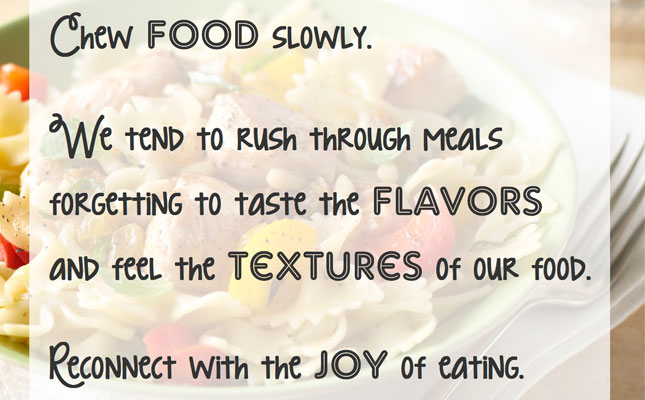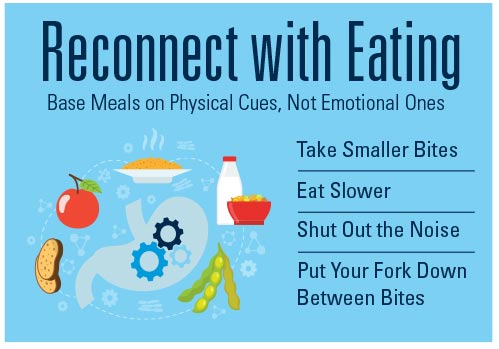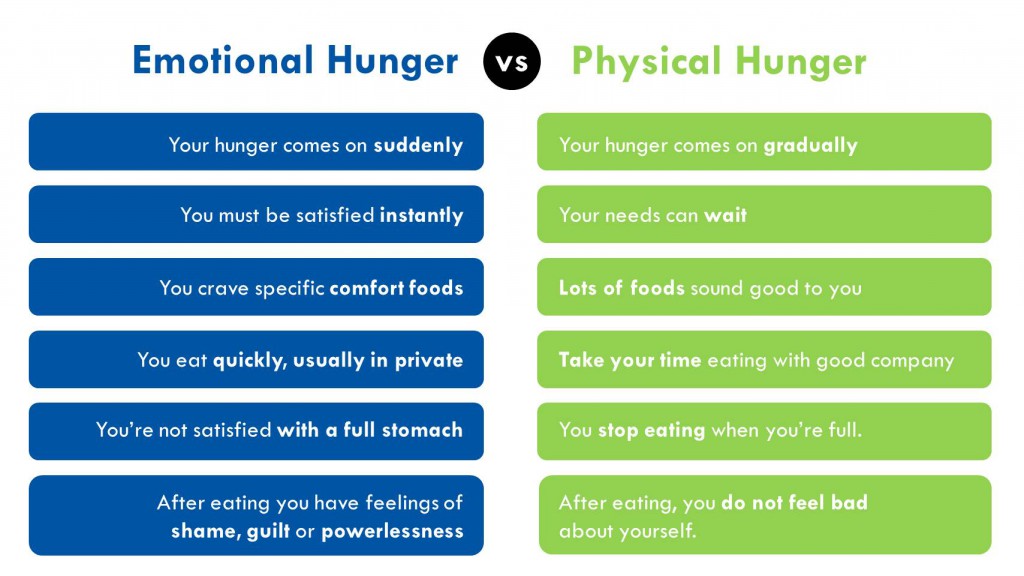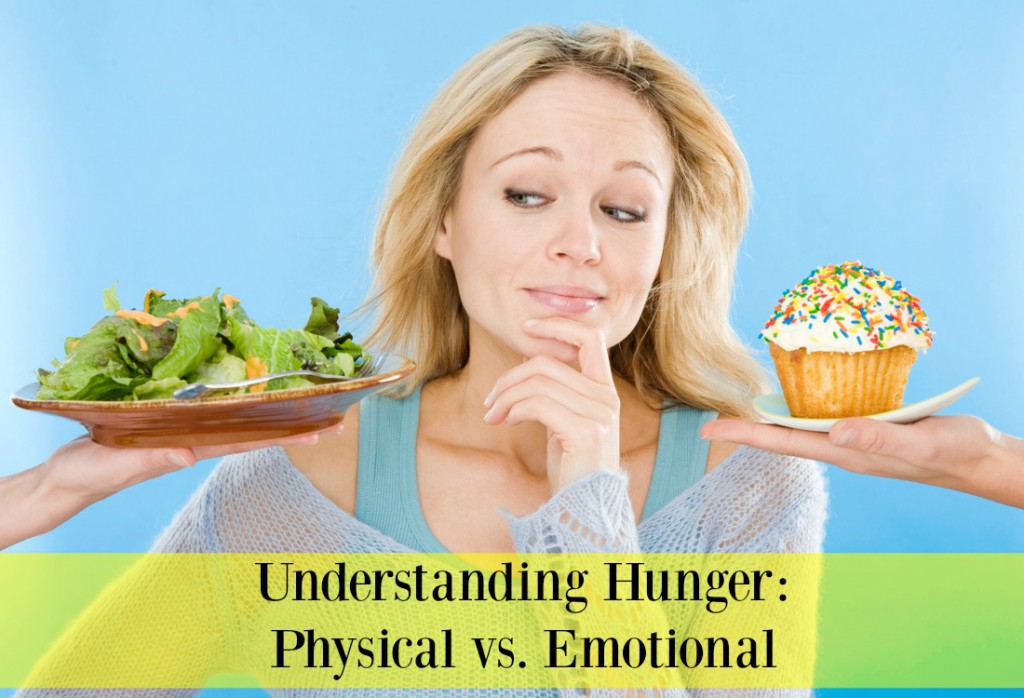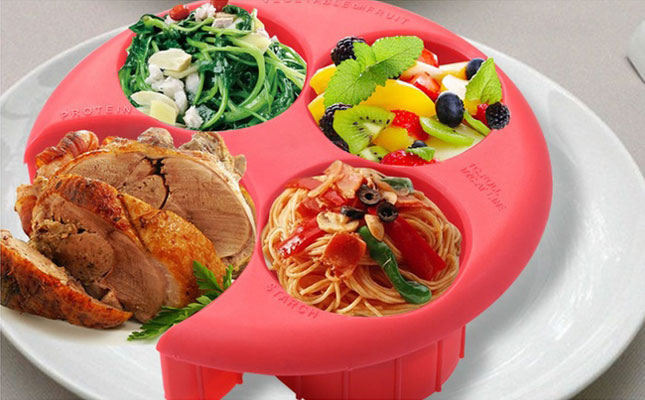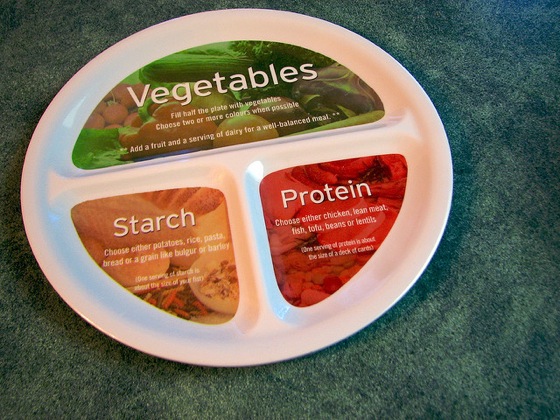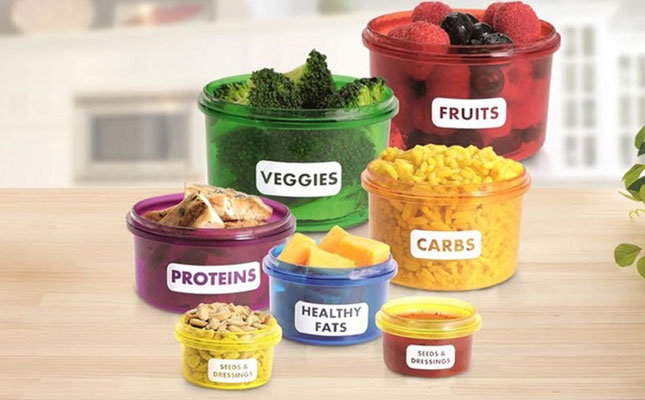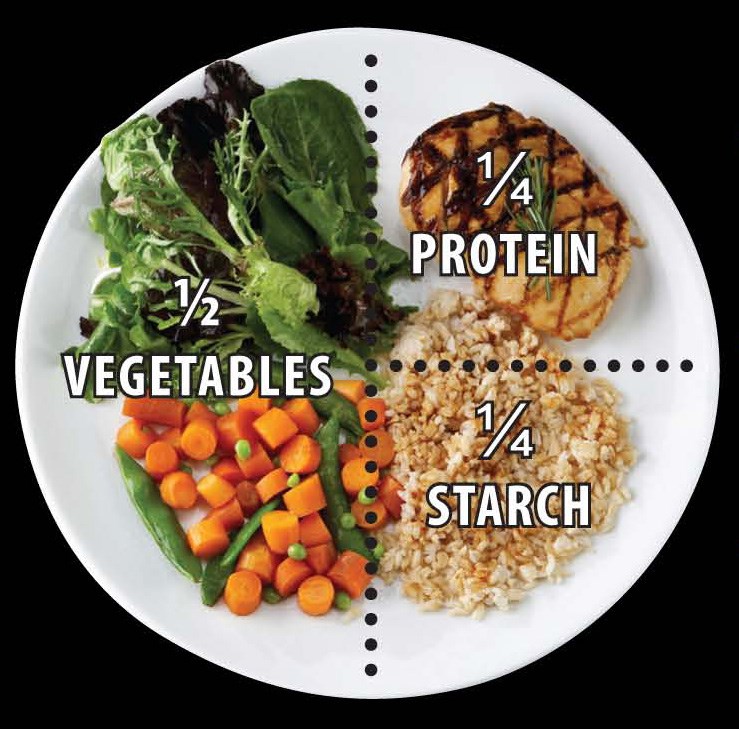 Remember the old adage – Eat to Live and not Live to Eat? We don’t always eat simply to satisfy hunger. There are times we turn to food for comfort, stress relief, or as a reward. It’s like an activity we do out of habit, like nail-biting, hair twirling, or finger tapping. Recent trends show that we habitually turn to food in response to certain emotions. For instance, eating chocolates or sweets when we’re sad or depressed. Whether you feel angry, sad, bored, or even excited—food can act as a buffer against these emotions. But is emotional eating good for you?
Remember the old adage – Eat to Live and not Live to Eat? We don’t always eat simply to satisfy hunger. There are times we turn to food for comfort, stress relief, or as a reward. It’s like an activity we do out of habit, like nail-biting, hair twirling, or finger tapping. Recent trends show that we habitually turn to food in response to certain emotions. For instance, eating chocolates or sweets when we’re sad or depressed. Whether you feel angry, sad, bored, or even excited—food can act as a buffer against these emotions. But is emotional eating good for you?
Emotional eaters know that it’s easier to stuff down our feelings with each bite rather than spilling them. Unfortunately, emotional eating doesn’t fix emotional problems. It usually makes you feel worse. Afterwards, not only does the original emotional issue remain, but you also feel guilty for having overeaten. Compounding the problem, you stop learning healthier ways to deal with your emotions, you have a hard time controlling your weight, and you feel increasingly powerless over both food and your feelings.
Where Do You Start To Stop Emotional Eating?
But, before that, ever wondered why we turn to food when emotionally distressed? When we eat food, chemicals are released from the food in the body. These chemicals have a strong impact on our emotional health, since food and mood are intricately connected. We feel sadder when we’re hungry due to lack of neurochemicals in the brain. To elaborate, through eating, we experience changes in serotonin, endorphins and dopamine levels in our brain – all of which control our mood. Sugar, for example, causes serotonin in the brain which makes us feel more balanced and equitable. Anti-depressants use the same chemical mechanism to improve mood. So coming back to the point, how and what do we do to deal with this?
Recognize What Triggers You To Eat Emotionally
As I mentioned earlier, people eat for many different reasons. Which situations, places or feelings make you reach for the comfort of food? Each time you reach for food (or even feel a craving come on), ask yourself, “Am I really hungry or am I just responding to something else that is happening?” If hunger isn’t the reason, it’s not always easy to pinpoint the reason why you feel like eating.
By tracking your food (and related notes) more regularly, you could notice trends, like a tendency to overeat on Mondays, for example, and then pinpoint your true feelings from there. Ask yourself what it is about Mondays that leads to overeating (stress from getting the kids to school? Anger over going to a job you hate? or holiday deprived?) Notice if you tend to munch in the evenings. Is it out of boredom, loneliness, anger, sadness, anxiety or an unhappy relationship? Once you identify your emotional eating triggers, the next step is identifying healthier ways to feed your feelings.
Find Ways To Fulfill Yourself Emotionally
It’s not enough to understand the cycle of emotional eating or even to understand your triggers, we need to proceed to step 2, which explains you to feed your feelings better. In order to stop emotional eating, you have to find other ways to fulfill yourself emotionally. You need alternatives to food that you can turn to for emotional fulfillment.
Some alternatives you can test out are:
- Call someone who always makes you feel better
- Play with your kids or pets
- Look at a favorite photo or a cherished memento whenever you feel low, depressed or lonely
- If you’re anxious, expend your nervous energy by dancing to your favorite song or squeezing a stress ball
- Take a brisk walk for fresh air
- If you’re exhausted, treat yourself with a hot cup of tea, take a bath, go to a spa for a massage, or light some scented candles and wrap yourself in a warm blanket
- Take a break or go on a weekend getaway
- If boredom kills you, read a good book, watch a show, explore the outdoors, or turn to an activity you enjoy (playing an instrument, painting, etc)
Form Healthier Habits
 Last step to deal emotional eating requires long term modification i.e. healthy lifestyle habits. When you’re physically strong, relaxed, and well rested, you’re able to handle the challenges that life throws at you in a better way. But, when you’re already exhausted and overwhelmed, any little hiccup has the potential to send you off the rails and straight towards the kitchen>refrigerator>food. Exercise, sleep, and other healthy lifestyle habits will help you get through difficult times without emotional eating. Make daily exercise a priority.
Last step to deal emotional eating requires long term modification i.e. healthy lifestyle habits. When you’re physically strong, relaxed, and well rested, you’re able to handle the challenges that life throws at you in a better way. But, when you’re already exhausted and overwhelmed, any little hiccup has the potential to send you off the rails and straight towards the kitchen>refrigerator>food. Exercise, sleep, and other healthy lifestyle habits will help you get through difficult times without emotional eating. Make daily exercise a priority.
Physical activity does wonders for your mood and your energy levels, and it’s also a powerful stressbuster. Give yourself permission to take at least 30 minutes every day to relax, decompress, and unwind. This is your time to take a break from your responsibilities and recharge your batteries for the next day. Connect with others. Don’t underestimate the importance of close relationships and social activities. Spending time with positive people who enhance your life will help protect you from the negative effects of stress.
With an arsenal of activities you can do besides eating, such as trekking, journaling and distracting yourself in a positive way, you’ll overcome your emotional eating problems once and for all. You might not be successful every time, but if you accept your mistakes and move forward, continuing to work on your issues, consider yourself on the right path to stop the emotional eating cycle.
If you need help dealing with emotional eating, reach out to our experts who are always happy to help. Speak to a GOQii Coach now to help you overcome emotional eating and help you reduce weight. Subscribe for Personalised Health Coaching here: https://goqiiapp.page.link/bsr
For more on weight loss, check out Healthy Reads. If this article helped you or helped someone you know, let us know your thoughts in the comments below!
#BeTheForce
